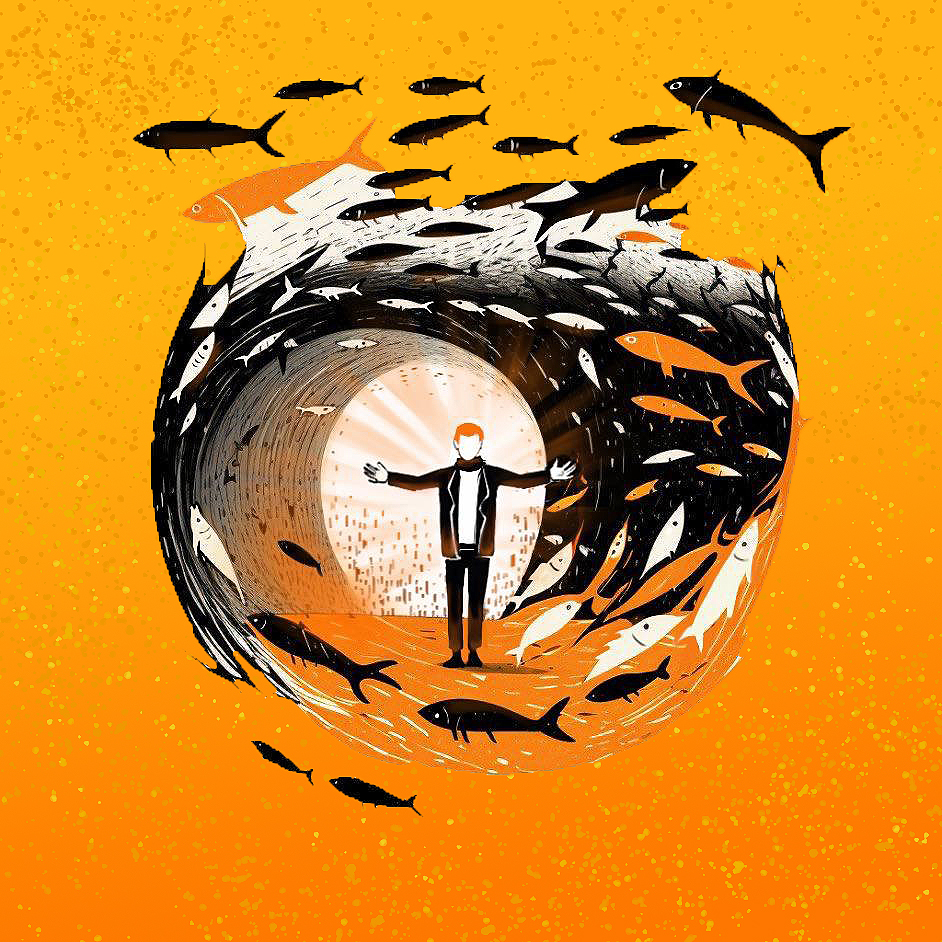BIG SHIP EFFECT

In a difficult time of total uncertainty, the most frightening thing for a person is to be left alone, facing the crisis and its consequences all by oneself. Dealing with problems on your own is challenging and often impossible. It's much better to navigate through turbulence collectively – together with people you know and trust. Perhaps that's why companies with the Big Ship Effect present tend to recover faster and more successfully after/during a crisis.
The war has shown whether the business managed to establish this effect during the pre-war period, allowing it to now contribute to the company's rapid recovery and preserve its most valuable capital – its people.
Over a year ago, in April 2022, after a two-month shutdown, we resumed operations at the Pet Technologies plant in Chernihiv. The majority of employees returned to work. Without any loud calls, they just came back and got down to work. Considering that we're engaged in machine building, the work was significantly complicated by electricity outages in the city during the first week after the plant's restart. However, this didn't stop us.
The Big Ship Effect, from my experience, besides the financial component (stable compensation), is based on two intangible aspects – the company's internal ideology and corporate traditions. I'll share our experience.
Internal ideology.
Emotional background within your team always depends on something. A person wakes up in the morning, checks the news, and brings that news to work, actively experiencing and discussing it with colleagues. Undoubtedly, with the onset of war and the shift in news content, their significance changed. But in general, it has always been this way. When 200-300 people gather in one place, each person has their own emotional background – usually negative. And everything within the company is permeated with this atmosphere.
A few years ago, I had an idea. If there's no positive ideological work being done with the population in the country (and before the war, it was indeed the case), then I need to create an ideology for my team within the company. It's not enough to talk about achievements and prospects once a year – "hitting this rock" must be done daily, with a manic determination.
In the company's offices and workshops, we set up screens displaying good news about our company – we simply called it PET-TV. For example, our engineer at a client's factory in Mexico launched a Pet Technologies machine. A photographer captured him, happy, alongside four Mexicans.
We've been collecting news for PET-TV for several years now – department heads contribute the news on Tuesdays. The formats vary – from graphs and photos to live mini-interviews with employees. Recently, in one such interview, an employee who travels to clients worldwide to install and set up our machines talked about how he visited clients in the USA, Mexico, and Uruguay in just one month. Passing by the screen, a person stops for at least half a minute. Gradually, step by step, this leaves an impression in their consciousness.
During dinner, a worker recalls what they saw on the screen and tells their spouse: "Imagine, our guy in Mexico started a machine for which I turned the part!" And this fact becomes ingrained in their thoughts in a positive context, realizing the scale and significance of their contribution to the collective cause.
The created emotional background of the company became a significant argument for employees during wartime. Adapting the staff during a crisis, especially after a break, is challenging. The fact that people returned to work is only half the battle. The level of stress and emotional state of individuals are factors that directly impact work efficiency. If the company is associated in the workers' minds with positive news that goes beyond the present and is consistently broadcast even now, it significantly contributes to smooth operations and high productivity.
Traditions.
Another essential feature of the "Big Ship Effect" is traditions. And here, of course, it's not about celebrating birthdays or corporate New Year parties. Traditions are something unchanging and established that brings a sense of stability in people through constancy: it was like this before, and it will continue to be this way, and of course, it complements the ideology. Traditional sod productions are yet another topic. Here, I'd like to focus on corporate life traditions.
One of ours is the tradition of growth. Everyone in our company has the opportunity to rise from a regular workshop worker to a top manager – numerous examples of such career transformations in 24 years have become traditional. An ordinary miller, driven to learn CNC (computer numerical control) after a short training, can be quickly promoted to the so-called working elite – CNC operators. The current production director started as a designer, and the CEO began as the head of the marketing department.
Involvement.
Over a month or two from the project submission date, designers can see how it transforms from a drawing on paper into a ready-made product. It’s a new practice that never existed in Soviet research institutes, for example. The process is interactive: following a specific (already traditional) procedure, workshop employees provide their remarks and suggestions for improving the product to the technologists and designers, who, in turn, take them into account and make adjustments.
Some traditions are over twenty years old, while others are pretty new. I'm convinced that war is not a reason to forget about old traditions (saying: not the right time, we need to survive, not think about traditions). On the contrary, it's a time when it's crucial to develop new traditions to strengthen the team's confidence that the company has the power not only to stay afloat but also to grow, develop, and be creative.
Last year, we introduced a new tradition - to honor employees who have been with the company for over twenty years. It happened like this: I was walking through the welding department, and I stopped to chat with a worker who had been with the company for a long time. I asked him how long exactly, and it turned out to be 24 years! Upon returning to my office, I asked the HR department for a list of people who had been with us for over 20 years. It turned out there were 12 of them. I decided to start a new tradition - to reward these "veterans" every year on the day they joined our company: a medal made in our workshop and a monetary bonus corresponding to the number of years worked in thousands of hryvnias.
Some believe a person should not stay in one place or position for more than seven years because they become ineffective. This mainly applies to office workers, and not always. In the workshop, a skilled welder can work for 15, 25, or more years. They perform their work with precision and have no desire to become the head of the department. Other things motivate them, and it's vital for them to understand that they are valuable to the company in the position they hold.
Lastly, my favorite corporate tradition is navigating crises, starting in 1999. The current war marks the fifth crisis. We deliberately emphasize in our communication with employees that enduring various challenges every five to eight years is now a fine tradition that emerged not long after the company's inception. Moreover, we highlight that we've emerged from each crisis with a surplus, not a deficit. This mindset holds significant importance for people today because they understand that the company has developed certain action algorithms from the past four crises, which are now supporting it during the current hyper-crisis.
Who in the company is responsible for implementing ideology and traditions? I firmly believe that this task falls on the owner, who is the chief ideologist of their company. Management may resist, employees may not fully comprehend, but persistence, time, and results do their work, and the next crisis indicates whether the effort put into realizing your ideas was worth it.
